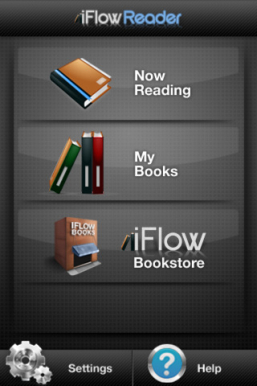BeamItDown Software, developers of iFlowReader, today announced that they will be forced to cease their operations at the end of this month. The move comes after Apple decided to enforce rule 11.13 of the ‘App Store Review Guidelines for iOS Apps’ – with Apple set to begin removing apps that do not conform to this rule by June 30. This means iFlowReader, which sold eBooks through an online store, would have to offer the same books within the app through In App Purchases – consequently meaning Apple gets its 30% cut of every sale made through the app.
In a statement on its website, BeamItDown Software makes it clear how if they went ahead and followed Apple’s guidelines, they would have to take a loss on every e-book sold – clearly not a sustainable business model. They explain that this occurs because the largest publishers (which account for more than 90% of the e-books they sell) have adopted an “agency model” in which means resellers, such as BeamItDown, receive a margin of less than 30% after paying the publisher. They say that the big publishers adopted this agency model after Apple negotiated with them over the iBooks deal. Prior to the agency model, resellers would typically receive a 50% discount on e-books.
The end result of BeamItDown Software and their iFlowReader, which had become quite a popular iOS e-reader with over six million downloads, is that it has, in essence, been shoved out of the iOS e-book market by the power Apple has over developers who rely on the iOS platform.
“We bet everything on Apple and iOS and then Apple killed us by changing the rules in the middle of the game.”
If you are a user of the app and its service, the short story is you will still be able to read your e-books, but you will have to jump through some hoops to ensure this. You will have until May 31st this year (the end of this month!) to do a few things related to back-up and downloading all your e-books from the site, which is shutting down. Jump to their statement for the details on this.
It was back in February when it was reported that Apple was tightening its hold on the iOS walled garden after it was revealed that Sony’s e-reader app was rejected for re-directing users to an online store for e-book purchases. Apple responded shortly after saying;
We have not changed our developer terms or guidelines,” Apple spokesperson, Trudy Muller, told The Loop. “We are now requiring that if an app offers customers the ability to purchase books outside of the app, that the same option is also available to customers from within the app with in-app purchase.
The impending shutdown of BeamItDown does raise the question over whether Apple is using monopolistic behavior to force out other e-book services. In their statement they highlight that with one swift change in policy application, Apple will be able to sell e-books at a cheaper rate than every other service on iOS and likely force a number of services, like iFlow Reader to completely shut down because they cannot afford that 30% cut.
What sounds like a reasonable demand when packaged by Apple’s extraordinary public relations department is essentially an eviction notice to all e-book sellers on iOS…They want all e-book business on iOS and since they have the unilateral power to get it, we are out of business and the iFlow Reader is dead.
In the face of such questions, many will argue that Apple deserves to have complete control over its own App ecosystem, and that Android and the Kindle offer strong competition to Apple and iBooks. However, at least in my mind, I get the sense that Apple, with it’s large user base, may have unfairly forced this company out of the e-book market to advance the use of iBooks.
Section 11.13 of App Store Review Guidelines for iOS Apps
Apps can read or play approved content (magazines, newspapers, books, audio, music, video) that is sold outside of the app, for which Apple will not receive any portion of the revenues, provided that the same content is also offered in the app using IAP at the same price or less than it is offered outside the app. This applies to both purchased content and subscriptions.


